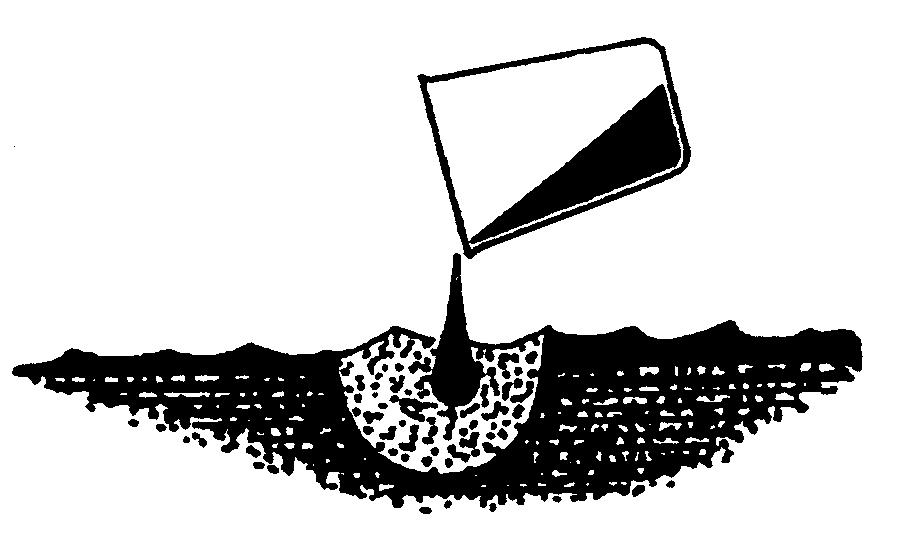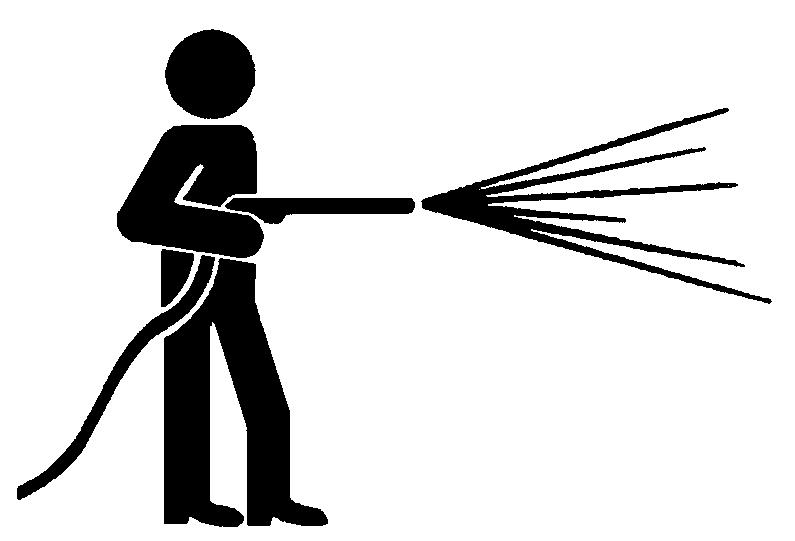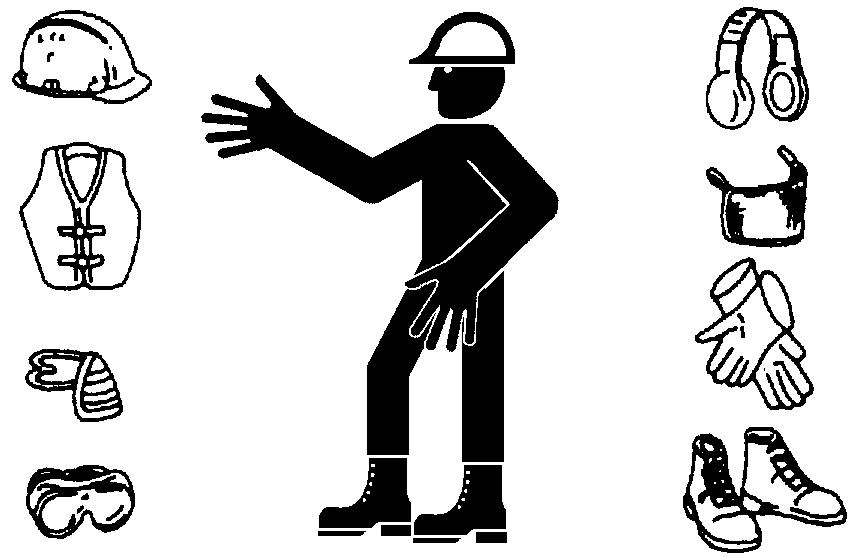
4 minute read
4.2 General safety & precautions
4.2 GENERAL SAFETY & PRECAUTIONS
A.DISPOSAL OF HAZARDOUS WASTE
Dispose of waste oils, fluids, lubricants, filters and other hazardous waste properly.
CAUTION
Dispose of all hazardous waste in accordance with government environmental regulations, laws and codes.
B.KEEP MACHINE CLEAN
Thoroughly clean machine before performing inspection and maintenance procedures. It is easier and safer to locate problems, perform maintenance and also reduce the risk of hydraulic system contamination when machine is clean.
C.HOT SURFACES & FLUIDS
Use cautions and wear the proper safety equipment when working around hot areas.
Never change oils, engine coolant or filters immediately after machine has been stopped.
Allow machine to cool down before performing maintenance procedures.
D.WARM ENGINE OIL
Engine oil should have a temperature of between 20~40˚C (68~104˚F) before the oil is changed.
If necessary run engine until the oil is warm within the recommended oil change temperature.

E.“TAG-OUT” MACHINE
Before beginning any inspection or maintenance procedures, secure a “ DO NOT
OPERATE” tag to the operator’s console to inform the operator that the machine will be inoperable for inspection and maintenance.
This tag will help prevent accidental starting of the machine.
OPERATEDO NOT
F1478
F1462
F.INSPECT WASTE OILS AND FILTERS
Before disposal, inspect all waste oils, fluids and filters for debris and foreign material. It is recommended to cut open the oil filters to determine any abnormal wear.
G.PREVENT CONTAMINATION
Always cap or plug lines when hydraulic components are removed to prevent hydraulic system contamination that can be caused by dirt, dust and debris entering a line or port.
CAUTION
Never allow a hydraulic line or component to become contaminated. This could cause severe system damage. Contact an authorized distributor to obtain the proper caps and plugs to be used on this machine.
H.SEALS AND “O”-RINGS
Always replace seals and “O”-rings with new parts. Never reuse a seal or “O”-ring during reassembly of components. Make sure to lubricate all new seals with the appropriate oil before installation.
I. STOP ENGINE
Never attempt any MAINTENANCE with engine running. Always stop the engine and allow machine to cool.
J.WEAR SAFETY EQUIPMENT
Wear hard hat, safety goggles or face shield, workgloves, safety shoes and well fitting work clothes when performing inspection and maintenance procedures on this machine.
K.CLEANING PARTS
Use only approved cleaning solvents and proper equipment to clean parts.
CHECK FOR DEBRIS
F16139

F16140
F1438
WARNING
Never use gasoline, diesel fuel or other flammable solvents to clean parts. Always clean parts in a well ventilated area.
L.HYDRAULIC TANK PRESSURE
Always release the internal pressure of the hydraulic tank before performing inspection or maintenance procedures.
1. Push rubber cap “DOWN” to release air pressure in the reservoir.
CAUTION
Gasses from hydraulic tank may be hot. Wear safety equipment.
M.WELDING SAFETY
1. Turnkey switch to “OFF” position. Wait 4 seconds for electrical power to disconnect.
2. Remove negative (-) cable from battery terminal. 3. Attach welder ground cable with 1 m (3´-3˝) away from component being welded. 4. Make certain welder ground is not located at a seal or bearing. 5. Make certain that no bearings nor seals separates the welder ground and the weld area.
KEY SWITCH IN “OFF” POSITION DEPRESS RUBBER CAP TO RELEASE PRESSURE
HYDRAULIC TANK
F16354
LO HI
HEAT OFF ACC ON START
F16141
F16142
N.RELEASING INNER PRESSURE IN
HYDRAULIC SYSTEM
WARNING
Never change oils or filters on a machine that has just finished working. Allow machine to cool first until oils and fluids are warm not hot. Release hydraulic tank pressure before working with any hydraulic component.
1. Select the hard and flat area and place the machine in the position shown in Figure. 2. Start the engine. 3. Keep the screen change switch and buzzer stop switch on the switch panel pressed for 5 seconds simultaneously, and the
“DRAINING HYD. PRESS” is displayed on the multidisplay and the buzzer sounds intermittently. 4. In this condition, operate the lever for attachment required to be released the pressure, and the internal pressure of the hydraulic pressure system is released.
Special attention must be given to operate because the attachment moves a little by its own weight. 5. After releasing the pressure, if the pressure release fails, the symbol “FAIL DRAIN HYD.
PRESS” is displayed on the multidisplay. 6. At the same time, buzzer sounds continuously. Turn the starter key “OFF”, and the buzzer stops sounding. 7. Release the pressure again. 8. Stop the dozer operating at the position where the blade reaches close to the ground, and after the engine stops, move the dozer lever forward and rearward several times, and the blade contacts the ground, consequently the inner pressure is released. 9. Stop the engine. Pressure release available.
DRAINING HYD. PRESS
F16316
F16143






